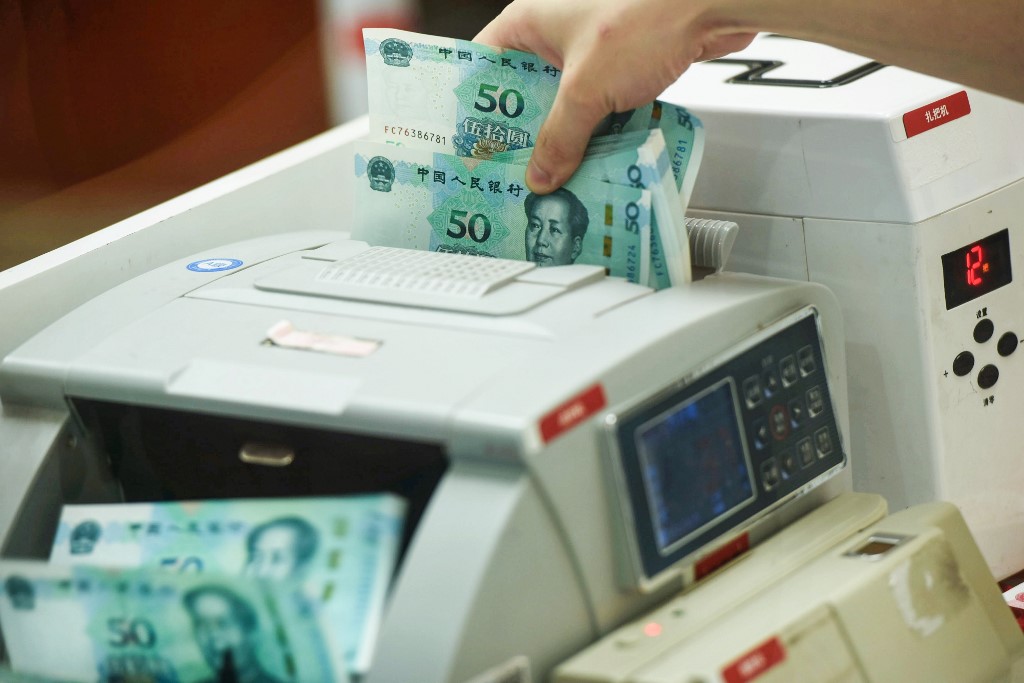(ATF) China’s central bank on Monday pumped cash into the banking system via reverse repos for the first time this month.
The move came amid growing concerns that there is not enough money in the financial system to provide loans and other credit to businesses struggling to recover from the coronavirus slump.
With no reverse repos maturing Monday, the People’s Bank of China (PBoC) injected 50 billion yuan ($7.15bn) into the market through seven-day reverse repos at an interest rate of 2.2%, according to a statement on its website.
The move is intended to maintain reasonable and sufficient liquidity in the banking system, the central bank said.
A reverse repo is a process in which the central bank purchases securities from commercial banks through bidding, with an agreement to sell them back in the future. The facility enables banks to build their coffers so they can lend to firms.
China has said it will pursue a prudent monetary policy in a more flexible and appropriate way to support the country’s recovery from the downturn, which inflicted the first quarterly GDP contraction on three decades.
China will use a variety of tools including required reserve ratio reductions, interest rate cuts, and re-lending to enable M2 money supply and aggregate financing to grow at notably higher rates than last year, the government’s annual report said.
























